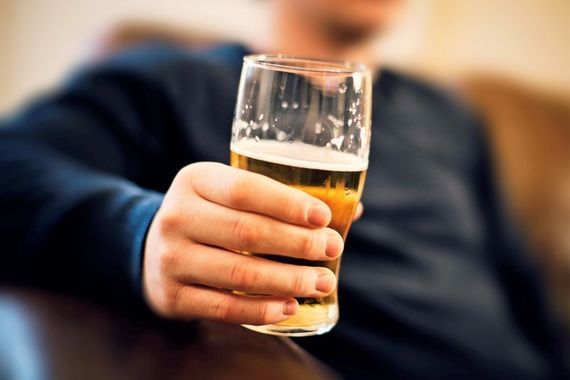A new report has found that one out of every three young drinkers in Ireland has an alcohol use disorder.
Conducted by the Health Research Board (HRB), the report also found that treatment for cocaine use for young people aged between 15 and 24 increased by 171% between 2011 and 2019.
However, the report also found that adolescents are starting to drink alcohol at a later age, with the average age of a first drink rising from 15.6 in 2002 to 16.6 in 2019.
Over one-quarter of young people reported using illegal drugs in their lifetime, while roughly 20% of young people have used an illegal drug within the last 12 months.
Young men are more likely to take illegal substances than young women, the report found, while more than two out of every five third-level students said they have used two or more substances at the same time.
Cannabis remains the most commonly used drug amongst young people, although the use of stimulants including ecstasy and cocaine has increased over the past decade.
In fact, ecstasy and cocaine use amongst young people in Ireland now ranks second-highest in Europe, while adolescents in Ireland rank 7th out of 25 European countries for reports of being drunk.
Alcohol and drug-related hospitalizations among young people increased by 12% and 26% respectively between 2015 and 2018, according to the report, while there was an 83% increase in cocaine-related hospitalizations between 2015 and 2019.
However, the number of young people abstaining from alcohol has increased significantly over the past 20 years, with 26% of all young people now abstaining compared to just 11% in 2002.
The HRB also reports a general decrease in the prevalence of binge drinking among young people.
HRB Chief Executive Dr. Mairéad O’Driscoll said in a statement that the report would help the organization inform effective responses that parents, practitioners, educators, and policymakers can take to ensure the health and wellbeing of young people in Ireland.
Meanwhile, Anne Doyle, a HRB Research Officer who authored the report, welcomed the news that young people were starting to drink at a later age but said the report also highlighted a number of challenges and risk factors.
"The report provides data that enables us to better understand the difficulties faced by young people when substance use is a very real part of society so that we can identify the protective factors that can help reduce risk. This will help strengthen the prevention of drug and alcohol use among children and young people, which is a priority of the National Drug Strategy," Doyle said in a statement.




Comments